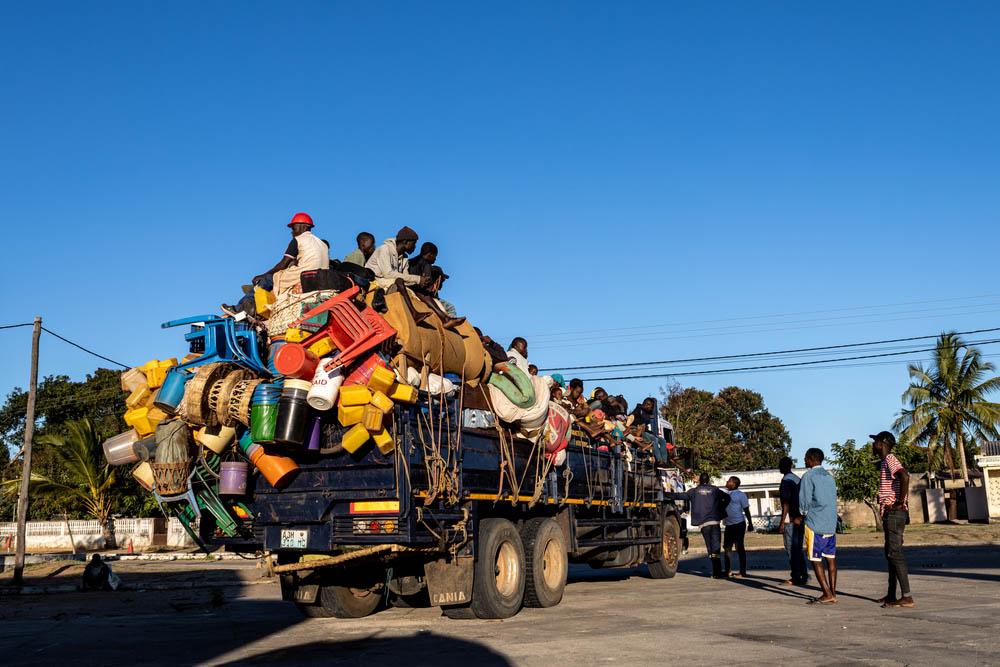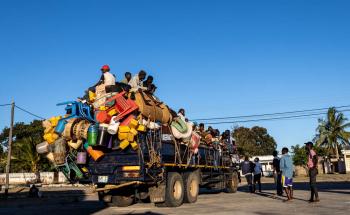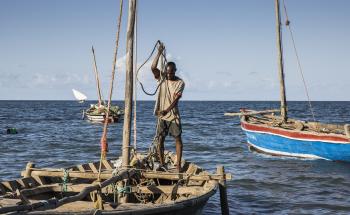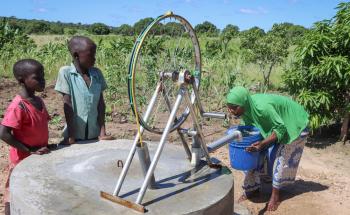Cabo Delgado, the province in the north-east of Mozambique, has been suffering from violent attacks and clashes between armed groups and government forces since 2017. The consequences are felt by everyone, including the thousands of people living with HIV. For them, getting their life-saving care has become next to impossible. In Mozambique, around 12 per cent of the population lives with HIV.
While close to 630,000 people remain displaced by the ongoing conflict in Cabo Delgado, northern Mozambique, over 540,000 people previously displaced have returned to their areas of origin . Those returning to their villages are usually confronted with total destruction, and their needs can be quite similar to those who remain displaced. The security situation remains volatile in Cabo Delgado.
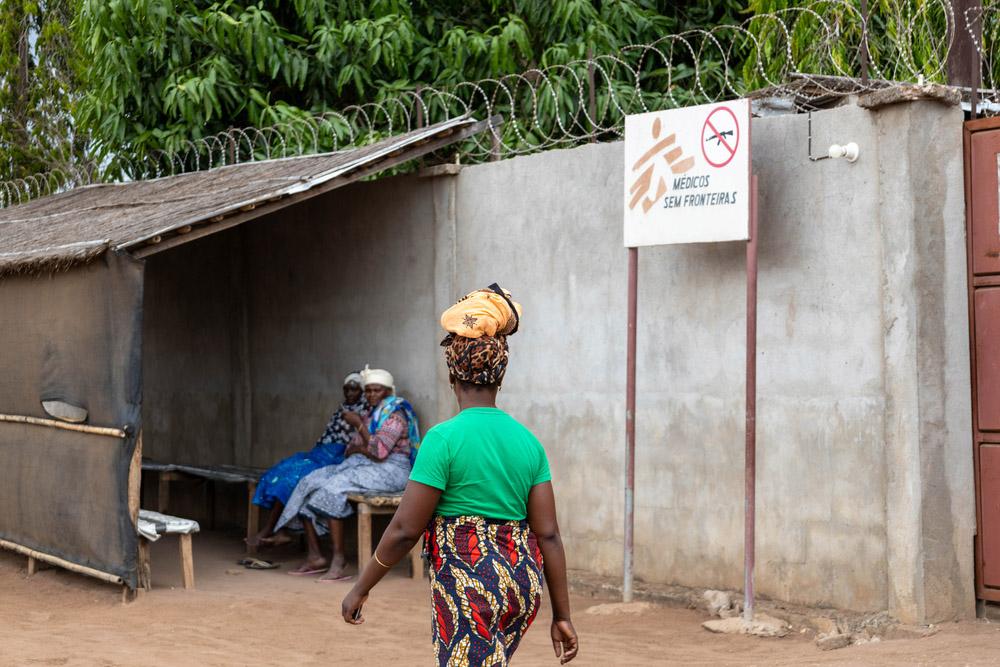
People with HIV can lead a normal and healthy if they take the right HIV medication. Interrupting that treatment is dangerous, explains Phillomina Kuvheya, the medical coordinator of MSF in the town of Macomia in Cabo Delgado. “When people stop taking their pills, their immune system weakens, and they start developing other diseases. Violence is having a significant impact on the mental health of all families touched by this conflict. Still, people living with HIV can experience even more stress and anxiety as accessing medication and healthcare is critical for them.”
The continuity of the treatment is key, but this has become immensely difficult. The attacks in this conflict are very violent, and often also very sudden. When they must run for their lives, people rarely can do so with a stock of HIV drugs. “I had to flee in a rush. I didn’t have anything with me, only my baby and the clothes we were wearing. I didn’t know where my husband and our other children had gone. And I did not have enough HIV medication with me,” says Maria*, a 43-year-old farmer from Macomia.
People living with HIV in conflict zones face very specific and enormous challenges. If these aren’t overcome, the consequences are deadly. Yet there’s barely any guidance for governments or aid organisations on how to support these people better. On World Aids Day, MSF asks that the needs of this very vulnerable group be made a priority in the ongoing fight against HIV and aids.MSF
The search for drugs is further complicated because the conflict has also destroyed much of the healthcare system. Until 2017, the government ran seven health posts in the district of Macomia. Today, only one is still functioning. As a result, people may have to travel very far for their treatment. MSF is currently running three clinics in Macomia Village and is also providing support in HIV testing and treatment, including on the prevention of vertical transmission of HIV for pregnant women (from mother to child). Previously, MSF used to run mobile clinics in remote areas of the district, but since June, the mobile clinics have been suspended due to insecurity.
“When my wife Sofia got very sick with HIV, we were displaced and we were too far from the clinic to go there,” says Constancio, a 43-year-old carpenter. “It was over five hours walking, but my wife was too weak to walk. We could also take a motorbike, but we did not have enough money.” It was impossible for Sofia to access healthcare services, and eventually, she succumbed to the consequences of HIV.
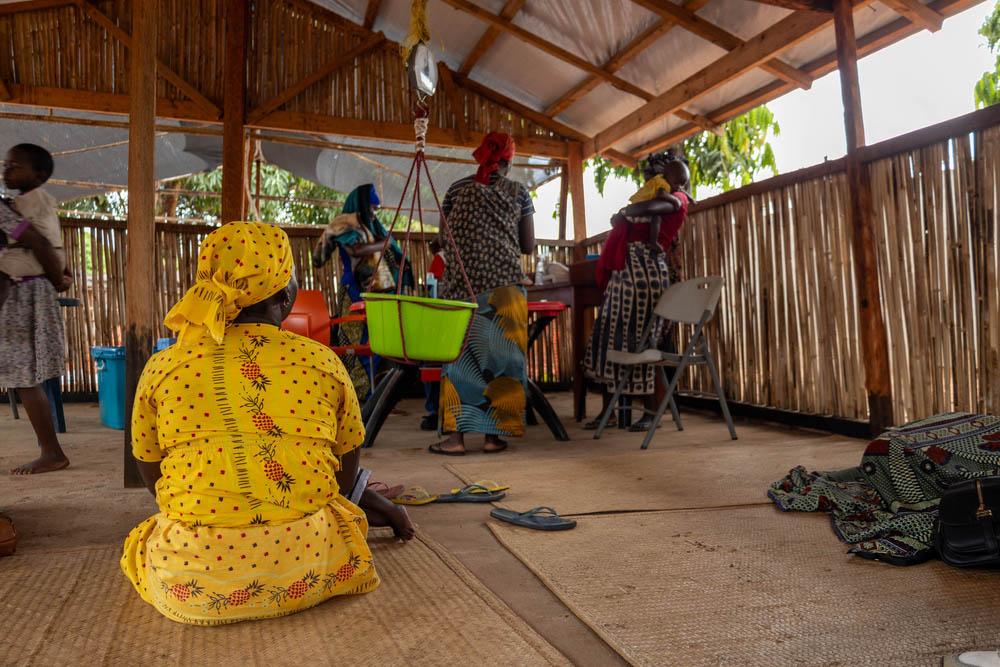
Given these enormous hurdles, recurrent displacement, and destruction of healthcare facilities, it is challenging not only for HIV patients to access treatment, but also to monitor their health and needs. Many are likely to have dropped treatment there . Before the conflict started, 6,000 people in Macomia District took HIV medication. Today, only about a thousand are known to be still on treatment. No one knows what happened to the other 5,000 patients; this is only one of the 16 districts in Cabo Delgado. There’s no doubt that many of them have died; others may be very sick right now. As the treatment suppresses the virus rather than killing it, people must keep taking their medication forever. If not, the disease will emerge.
“Sometimes people with HIV come to our clinical in a critical condition, with advanced forms of HIV. We refer them to the hospital in Pemba, the provincial capital. But most of these patients pass away. Advanced HIV disease is among the leading mortality causes for our patients here,” says Phillomina Kuvheya.
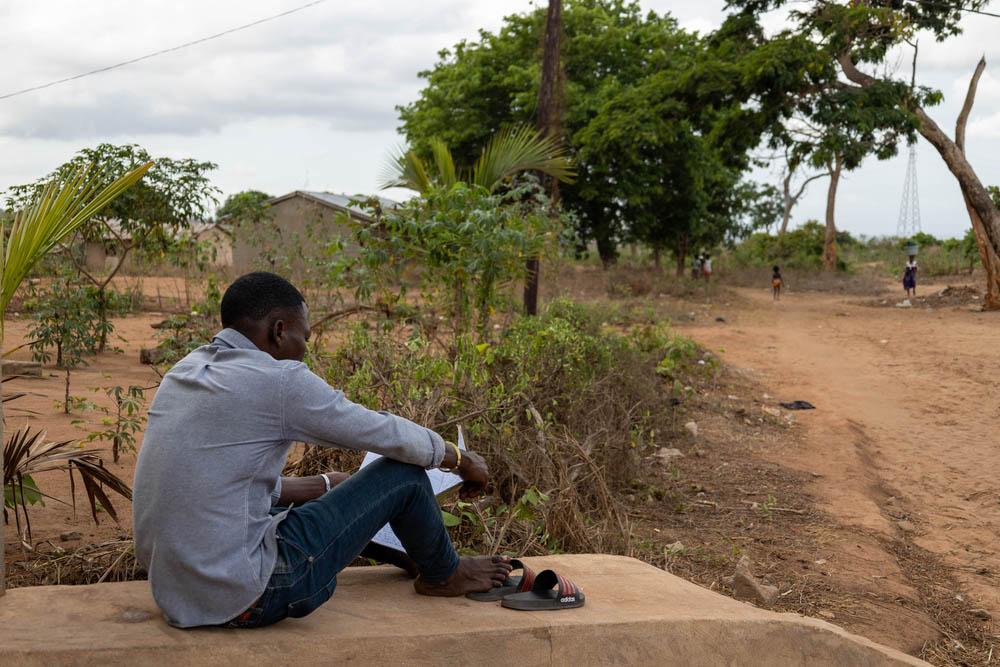
In addition to this, in Cabo Delgado, communities and patients suffer the impact of stigma and discrimination against HIV. On some occasions, there is even self-discrimination caused by lack of access to information. Additional efforts need to be put into practice to break the stigma, taboos, and discrimination around HIV. Fear of stigma and discrimination is also one of the reasons leading patients to drop treatment and interrupt treatment.
People living with HIV in conflict zones face very specific and enormous challenges. If these aren’t overcome, the consequences are deadly. Yet there’s barely any guidance for governments or aid organisations on how to support these people better. On World Aids Day, MSF asks that the needs of this very vulnerable group be made a priority in the ongoing fight against HIV and aids.
Constâncio, 43, carpenter: Displaced from Nkóe, Macomia
“In June 2022, Sofia, my wife of three years, passed away. We lived in the village of Nkóe. She had HIV, but I only found out two months before her passing. In April of that year, Sofia was very sick. I walked for six hours to collect malaria medication for her, but when I got home, my brother-in-law told me that my wife did not have malaria. She had HIV and used to take antiviral drugs before we got married. She had stopped taking the medication, fearing I would divorce her if I found out she had HIV. We rushed to the MSF clinic in Macomia Sede. The MSF team confirmed Sofia had HIV, and they explained she was very sick because she had stopped taking her medication for a long period.
We wanted to return to Nkóe, but there were armed groups around, and we were scared. We stayed in a small shelter I built for a few weeks in the fields. I made sure Sofia took her medication every day. I wanted her to recover. But in June, her health got really bad. We were still living in the fields and too far from Macomia Sede to return to the clinic, so we risked returning to Nkóe. But within a week of our return, armed men attacked our village.
On that day, I got up very early to plant corn. I returned home around 8:00 am and sat next to Sofia to keep her company. She was very weak and could barely speak. Suddenly, I heard shooting, and we saw houses on fire. I ran to the bush, seeking safety, to survive. But my heart was in pain because I had left Sofia behind. I could not carry her with me when the attack began, and she was barely conscious.
When the shooting was over, I went back home to Sofia, although with little hope. My fear was confirmed, Sofia had passed away. I could not think of anything, and I was afraid that armed groups would return. I called some family members to share that Sophia had passed away, to bury her and to say a last goodbye. We were 15 people. Everything happened had to happen very fast because we had to flee again. We walked for five hours, to Macomia Sede.
In Macomia, I started feeling unwell, with stomach aches and coughing. I went to the MSF clinic in December 2022, where I was tested for HIV. The result was positive. I knew I had to start the treatment to avoid going through the same suffering as Sophia. I have to return to the clinic every month for observation and to collect my medication.
I am feeling okay. I’m leading a normal life. But I am very sad. Sofia ended up losing her life, and I got HIV. If she had not interrupted the treatment, we could still be together.
The most important thing for people living with HIV is to access health services and do the medication. But almost all health posts have been destroyed by the fighting.”
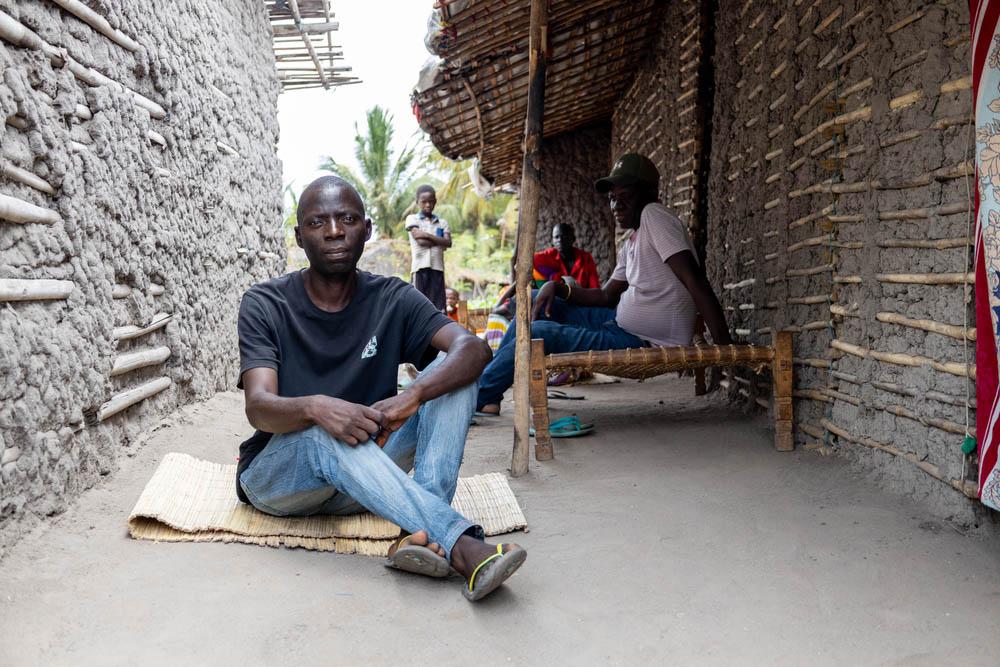
Fina, 19, student, and her baby Bernardo: Displaced from Muidumbe, living in Macomia
“In 2020, I had to flee my hometown in Muidumbe because of the violence. My husband was feeling very bad and became very ill. He had body pains and strong headaches, so we took him to the hospital. He tested positive for HIV and was already in a critical condition. But he refused the result and he didn’t want to take medication. He feared I would divorce him because he had HIV. It was too late. He passed away shortly after, and I also tested positive for HIV. As I did not want to have the same fate, I started taking the medication. I feel well, and there is nothing wrong with this treatment. I do not want to see HIV progressing.
Shortly after my husband’s death, I travelled to Macomia to join my mother, who has been displaced here since 2020. In November 2022, I got pregnant, and my son, Bernardo, was born in August this year. Since he was born, he is also taking the drugs against HIV. We both come to the MSF clinic every month to pick up our drugs. Sometimes my body hurts but the medication is helping a lot.
I am currently studying in the 8th grade. Unfortunately, when I fled Muidumbe three years ago, I stopped studying and fell a few years behind. I want to continue my studies and become a policewoman. I believe that is very important work. I want this conflict to end, and one day, I would like to return home to Muidumbe.”
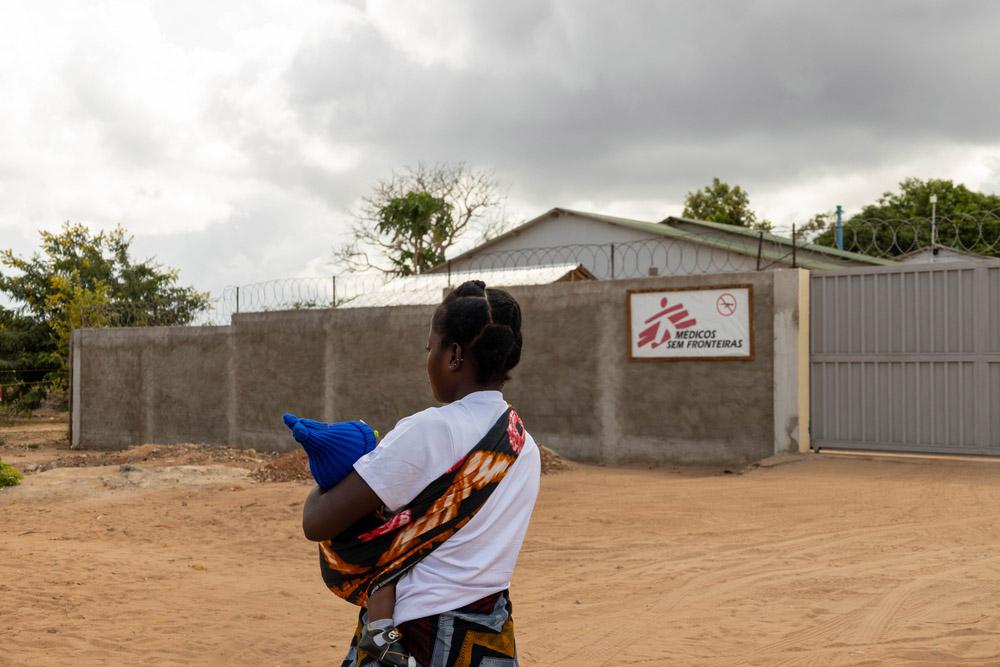
Maria, 43, farmer: Macomia
“I found out I had HIV in 2019, when I was pregnant with my fourth and last child, Yolanda. I was really afraid that she would get HIV, too. I was relieved that we were on time to prevent the transmission of HIV to her. She is currently four years old, and she is healthy and doing very well.
In May 2020, we had to flee Macomia when the town was attacked. I fled with my daughter Yolanda, and my husband and other three children fled in different directions. We got separated from each other. Yolanda and I stayed hiding in the bush for three days. We drank water from the river and got food from some people we met on the way. We had left in a rush. I didn’t have anything with me, only Yolanda and the clothes we were wearing. I also did not have my HIV medication with me. I was very scared. I could hear shootings nearby. But after three days of hiding, I could return to our home in Macomia to look for my family and collect a few things: some clothes, a little food, and, of course, my HIV medication. Then, our family fled to Chiure.
When we arrived in Chiure, I only had HIV medication left for one week. Thankfully, I met someone who had HIV, and they helped me to get access to the hospital to get new drugs. During the two years I was displaced in Chiure, I always had access to medication and regular testing in Chiure. But in June 2022, Chiure came under attack as well.
Some people were returning to Macomia, and we decided to join them. But we are still afraid of the violence. We are only farming on small plots near the main town of Macomia. We don’t dare go to places further away, where the plots are larger and the soil is more fertile. It is too dangerous. In May this year, my husband, who was 48 years old, was killed. He was a fisherman. He went fishing and was beheaded during an attack by the armed groups.
When we arrived here, I had medication for only two days. Fortunately, I met a health promotor from MSF, Domingos, and I told him I had run out of HIV drugs. He told me to go to the MSF clinic in Nanga. Since June 2022, I have been coming to this clinic to collect my medication. I usually come once a month, and the services are quite good – the staff are very friendly and make us feel welcome and comfortable. I take my medication very seriously: one pill every morning. I feel well and strong, and almost every day, I work on my fields.”
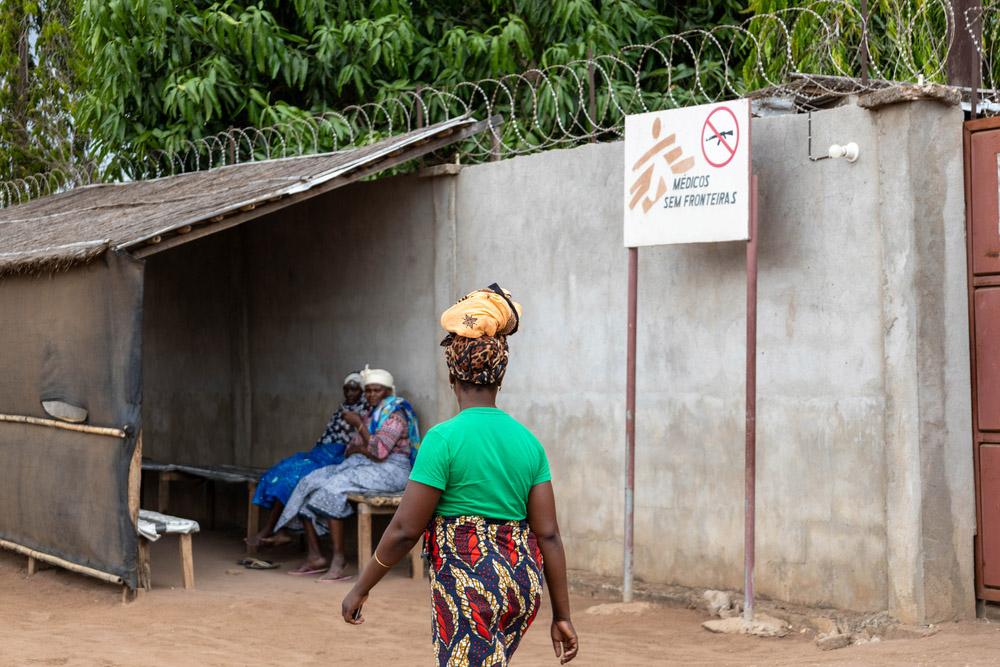
Fahamo, 24 years: Macomia Sede
“I discovered in September 2023 that I have HIV, at the MSF clinic in Nanga. I came to the clinic because I had a skin infection, my leg was swollen, and I was in pain. I had been going to traditional healers several times, but nothing made me feel better, and my condition only got worse.
In 2019, I was displaced twice due to the violence: the first time from Bilibiza, where I was studying agriculture auditing, and the second time from Quiterajo, where I was staying with my family. In 2020, I went to Metuge, where I did a two-month internship, but I had to interrupt it as I started feeling sick. I returned to Macomia in July 2020, shortly after the attacks had taken place. The health centres had been destroyed and were not working: that’s why I went to traditional healers.
In September 2023, my condition was getting very bad. My leg had swollen so much I could not even put on my trousers. I went to the MSF clinic in Nanga, where I was tested for HIV and found out I was positive. As my condition was so bad, I had to be referred to the hospital in Pemba, the provincial capital, where I stayed for two weeks. Since then, my health has improved, and I feel normal.
I am taking the HIV medication, and I can have a normal life despite the virus. However, the war makes it difficult to have a job and an income. It’s very difficult to pay for transport to go to one of the very few clinics where we can collect our medication and have medical appointments.
In the future, I would like to get married and have three children. It is crucial to continue taking the medication and take all necessary measures to prevent transmitting HIV to my future partner and children.”

